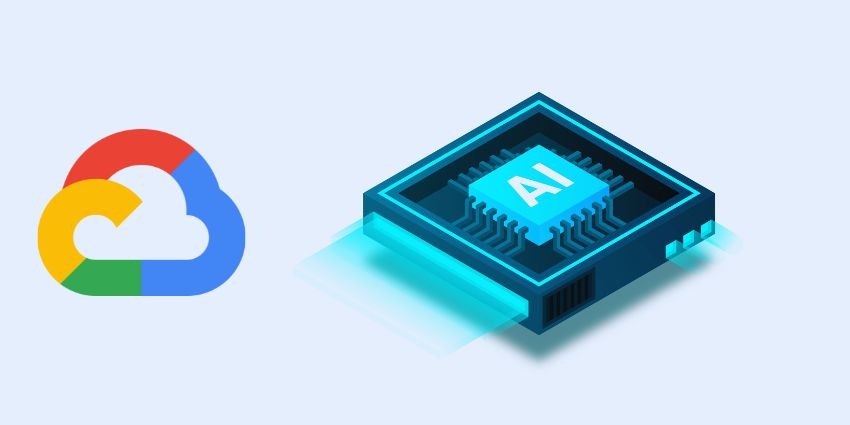Google Cloud gets in on Agentic AI to elevate employee experience by introducing groundbreaking tools designed to transform workplace operations. This development underscores Google Cloud’s commitment to leveraging artificial intelligence to enhance productivity and improve employee engagement. The integration of Agentic AI, which focuses on creating systems that collaborate dynamically with users, marks a pivotal moment in the evolution of workplace technology. By embedding AI into everyday workflows, businesses stand to unlock new efficiencies while ensuring that employees feel supported and empowered.
Agentic AI is a concept rooted in creating AI systems that not only perform tasks but also adapt and respond intuitively to user needs. Google Cloud’s adoption of this approach is set to redefine how organizations utilize technology to streamline operations. Unlike traditional automation tools, which rely heavily on predefined instructions, Agentic AI leverages advanced machine learning models to anticipate user requirements and provide proactive solutions. This shift allows for a more seamless interaction between employees and technology, ultimately fostering a more supportive and productive work environment.

One of the core areas where Google Cloud is implementing Agentic AI is in task automation. By identifying repetitive or time-consuming processes, the system can take over mundane responsibilities, freeing employees to focus on more strategic or creative initiatives. For example, Agentic AI can manage data entry, schedule meetings, or compile reports with minimal human intervention. This level of automation reduces cognitive load and enhances operational efficiency, giving employees the bandwidth to engage in higher-value activities.
Additionally, Agentic AI in Google Cloud is designed to improve decision-making processes within organizations. By analyzing vast amounts of data in real-time, the AI can provide actionable insights tailored to specific business needs. Whether it’s predicting market trends, identifying customer preferences, or optimizing resource allocation, the system ensures that employees have the information they need to make informed decisions quickly. This capability is particularly beneficial in fast-paced industries where agility and accuracy are critical to success.
One of the standout features of Google Cloud’s Agentic AI is its ability to facilitate personalized employee experiences. The AI adapts to individual work styles, preferences, and requirements, creating a tailored interface for each user. For instance, it might prioritize specific tasks based on an employee’s workload or suggest tools and resources relevant to their current projects. This level of personalization not only boosts productivity but also enhances job satisfaction by making employees feel valued and supported.
To understand the potential impact of this technology, it’s essential to consider how it addresses common challenges faced by organizations. Employee burnout, for example, is a widespread issue exacerbated by increasing workloads and constant connectivity. By automating routine tasks and providing intelligent support, Agentic AI can alleviate stress and prevent burnout. Similarly, the system’s ability to deliver real-time insights helps employees stay ahead of deadlines and make better use of their time, reducing the pressure associated with last-minute decision-making.
Moreover, Google Cloud’s Agentic AI is designed with collaboration in mind. The AI facilitates better communication and coordination among team members by integrating seamlessly with existing workplace tools and platforms. Whether it’s coordinating schedules, sharing updates, or managing workflows, the system ensures that teams remain aligned and productive. This collaborative capability is particularly valuable in hybrid or remote work environments, where maintaining cohesion can be challenging.
The implementation of Agentic AI also has significant implications for employee training and development. By analyzing performance data and identifying skill gaps, the AI can recommend personalized learning paths and resources. This targeted approach to professional development ensures that employees have access to the tools they need to succeed while aligning their growth with organizational goals. Furthermore, the AI’s ability to monitor progress and provide feedback creates a continuous learning loop, fostering a culture of improvement and innovation.
Despite its many advantages, the adoption of Agentic AI in the workplace is not without challenges. Privacy and security concerns are among the primary issues that organizations must address. Google Cloud has emphasized its commitment to data protection, ensuring that its AI systems comply with stringent security standards. By implementing robust encryption protocols and maintaining transparency in data usage, the company aims to build trust among users and safeguard sensitive information.
Another potential challenge is the integration of Agentic AI into existing workplace infrastructure. Organizations must invest in training and resources to ensure that employees can effectively utilize the new technology. This process involves not only technical training but also addressing cultural resistance to change. Google Cloud is working closely with its clients to provide comprehensive support during the implementation phase, helping businesses navigate the transition smoothly.
To illustrate the transformative potential of Agentic AI, consider its application in customer service. By automating routine inquiries and providing agents with real-time insights, the AI can significantly improve response times and customer satisfaction. Similarly, in industries such as healthcare, the technology can assist with patient management, diagnostics, and treatment planning, enhancing both efficiency and outcomes. These examples highlight the versatility of Agentic AI and its ability to drive innovation across diverse sectors.
As organizations increasingly recognize the value of AI in enhancing employee experience, the demand for solutions like Google Cloud’s Agentic AI is expected to grow. Industry experts predict that this technology will become a cornerstone of workplace transformation, enabling businesses to achieve greater agility, resilience, and competitiveness. By prioritizing employee well-being and productivity, companies can foster a more engaged and motivated workforce, ultimately driving long-term success.
The broader implications of this shift extend beyond individual organizations. As AI becomes more integrated into the workplace, it has the potential to reshape societal attitudes toward work. By reducing the emphasis on mundane tasks and enabling more meaningful contributions, technology like Agentic AI can redefine the role of employees in the modern economy. This evolution requires careful consideration of ethical and regulatory frameworks to ensure that the benefits of AI are distributed equitably and responsibly.
Google Cloud’s foray into Agentic AI represents a significant step forward in elevating employee experience. By harnessing the power of AI to automate tasks, provide personalized support, and enhance collaboration, the company is setting a new standard for workplace technology. While challenges remain, the potential benefits of this innovation are too significant to ignore. As businesses and employees alike adapt to this new era of AI-driven productivity, the focus must remain on creating systems that empower individuals and drive collective success. Through thoughtful implementation and ongoing refinement, Agentic AI has the potential to transform the workplace and unlock unprecedented opportunities for growth and innovation.










Add Comment